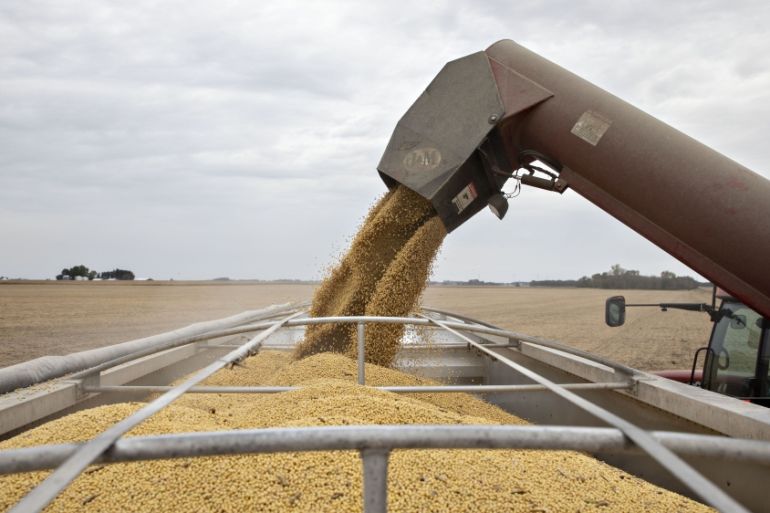China approves two genetically modified crops for import from US
Beijing has also renewed import licences for 10 other such crops as trade tensions with the US ease.

China approved two new genetically modified (GM) crops for import on Monday that could boost agricultural purchases from the United States, while renewing permits for 10 others, the agriculture ministry said.
The move comes after Beijing and Washington agreed to sign a Phase 1 trade deal earlier this month. The US has demanded that China change its GM crop import application process to make it more transparent, timely and based on scientific methods.
Keep reading
list of 4 itemsPolitics and convenience drive Mexico to be US’s top trading partner
Will Xi and Biden mend US-China relations at the APEC summit?
UK warns of Russia laying ‘sea mines’ to deter Black Sea cargo ships
China has also agreed to import more farm goods from the US under the initial deal.
The two new GM crops approved were Corteva AgriScience’s DAS-81419-2 soybean, and 55-1 papaya, jointly developed by the US Department of Agriculture and Hawaii University.
Corteva was the agricultural unit of DowDuPont prior to being spun off as an independent public company.
“This further expands channels for imports of US agricultural products, and helps pave the way for buying more US soybeans,” said Li Qiang, chief analyst with Shanghai JC Intelligence Co. Ltd.
“Approval of the papaya variety could help promote more fruit imports from the US,” Li added.
The US is the world’s biggest producer of GM crops, while China is the top importer of GM soybeans and canola.
US farmers and global seed companies have long complained about Beijing’s slow and unpredictable process for approving GM crops for import, stoking trade tensions between the world’s two largest economies.
China also renewed permission for imports of 10 other GM products, including BASF-developed corn, soybean and canola.
Bayer-owned Monsanto Far East Ltd’s soybean, cotton and beet were also reapproved, along with DuPont subsidiary Pioneer’s soybean varieties.
All approvals took effect from December 2, 2019, and would last for three years, according to a statement on the agriculture ministry’s website.
The Phase 1 deal was announced after more than two years of on-and-off trade talks, although neither side has released many specific details of the agreement.
US officials say China agreed to increase purchases of US products and services by at least $200bn over the next two years.
According to Washington, that would include additional purchases of US farm products of $32bn over two years. That would average an annual total of about $40bn, compared with a baseline of $24bn in 2017 before the trade war started.